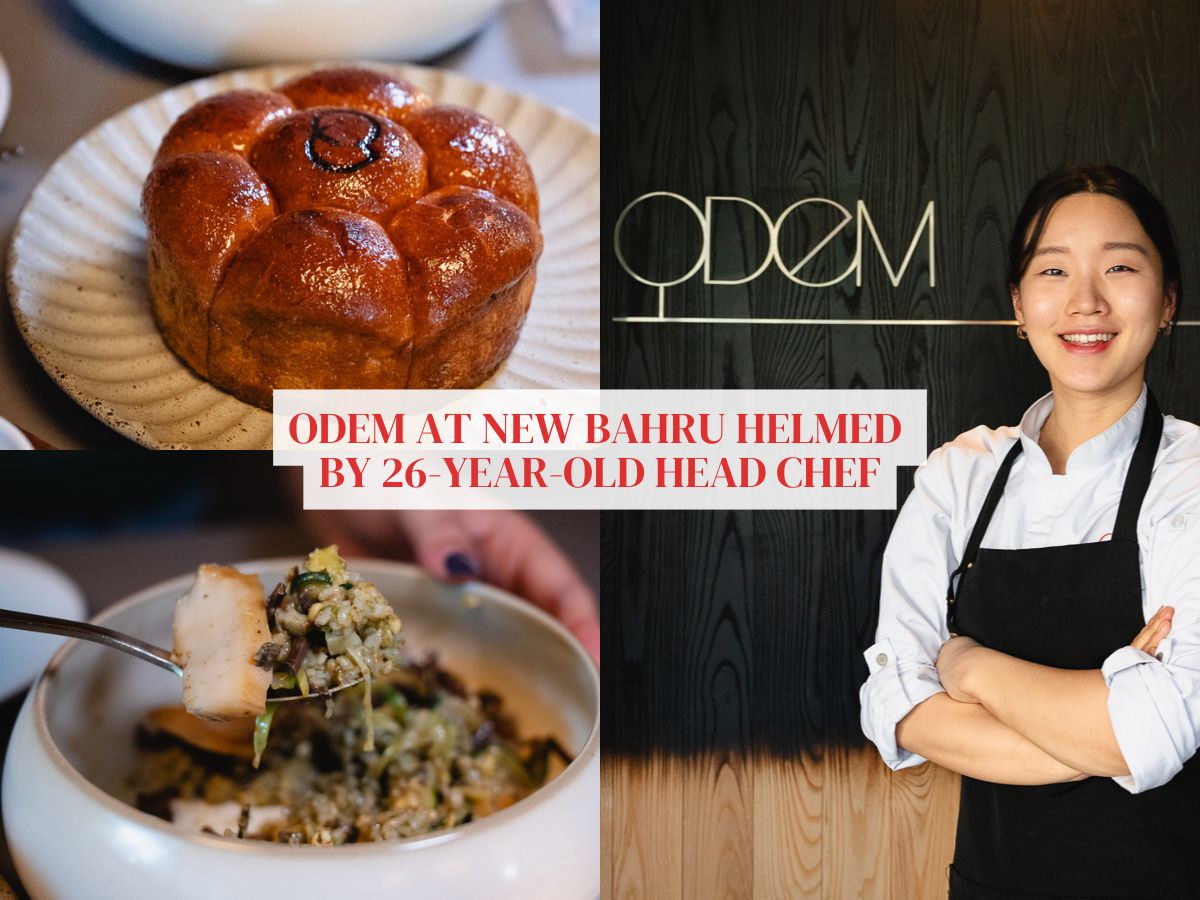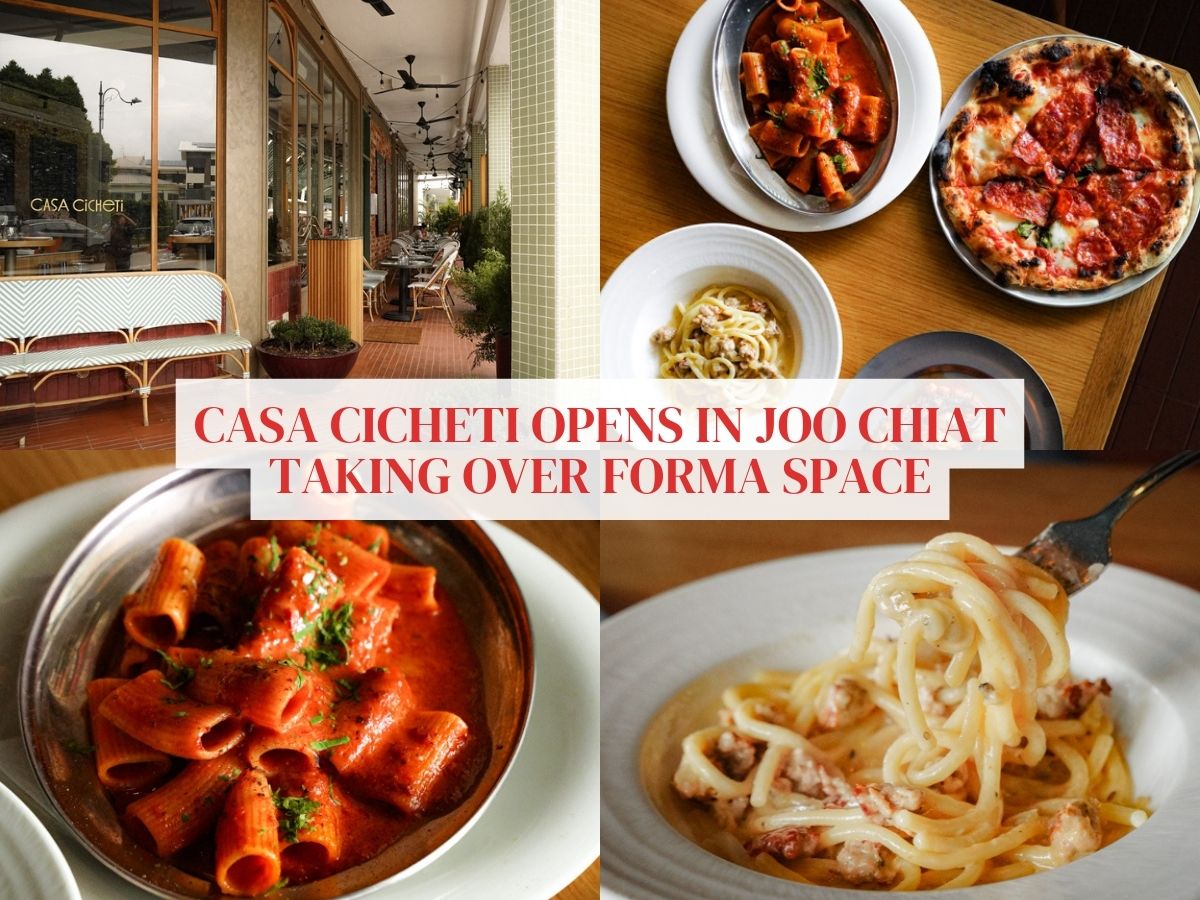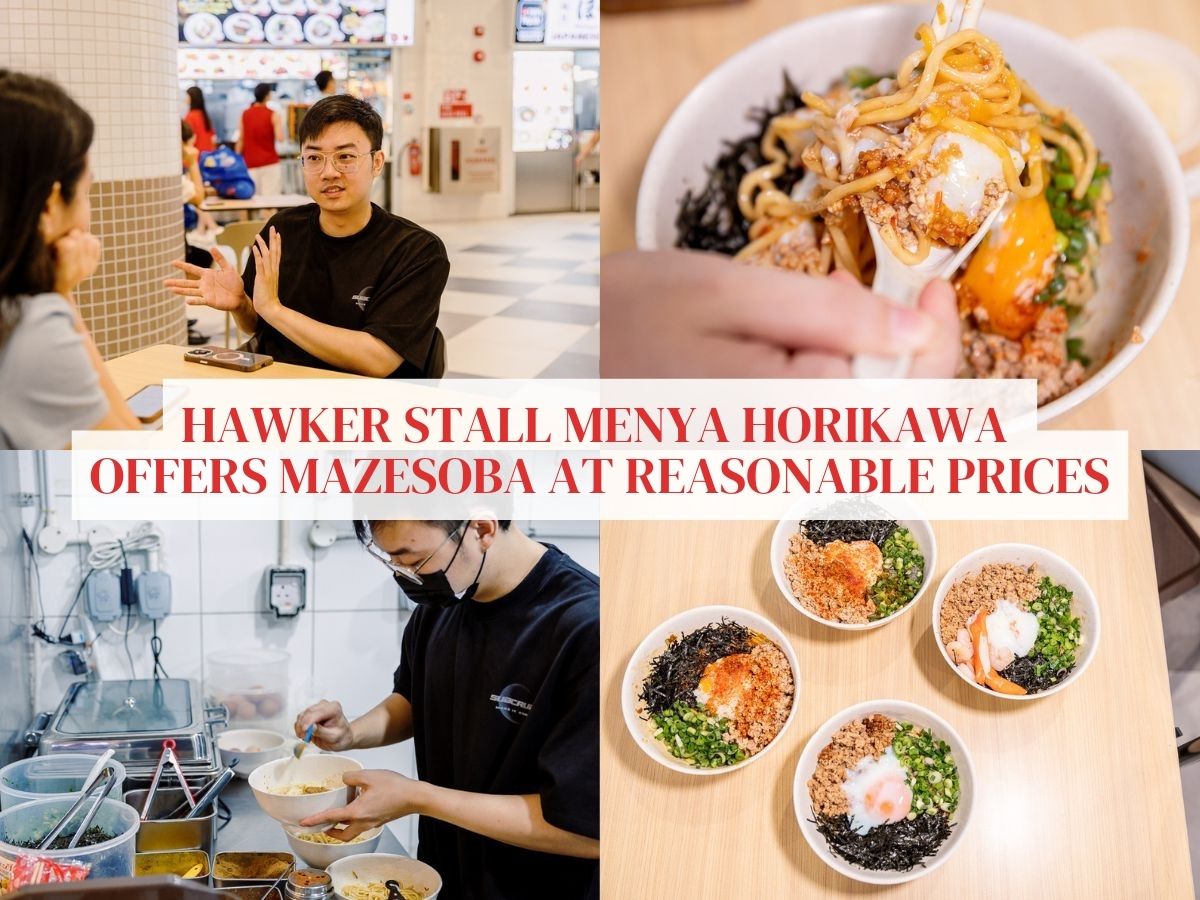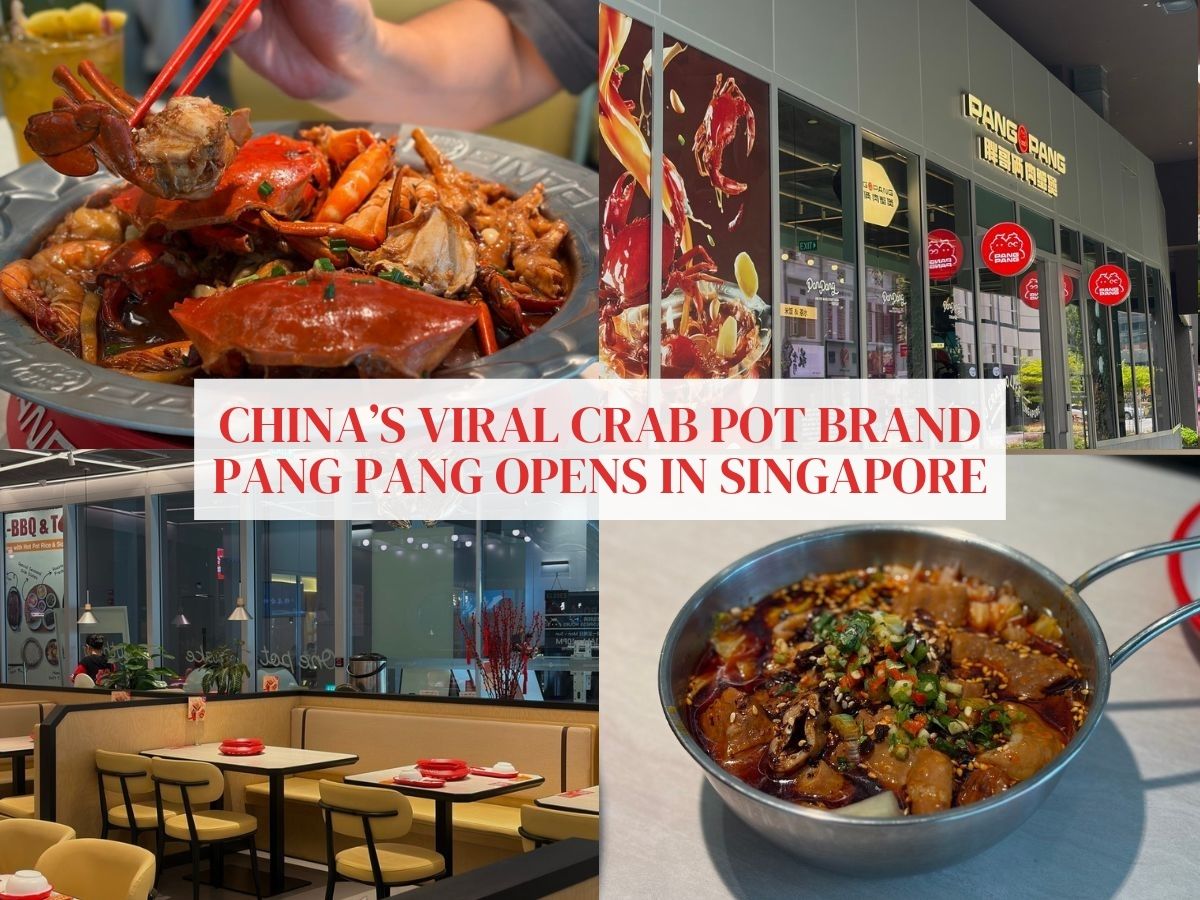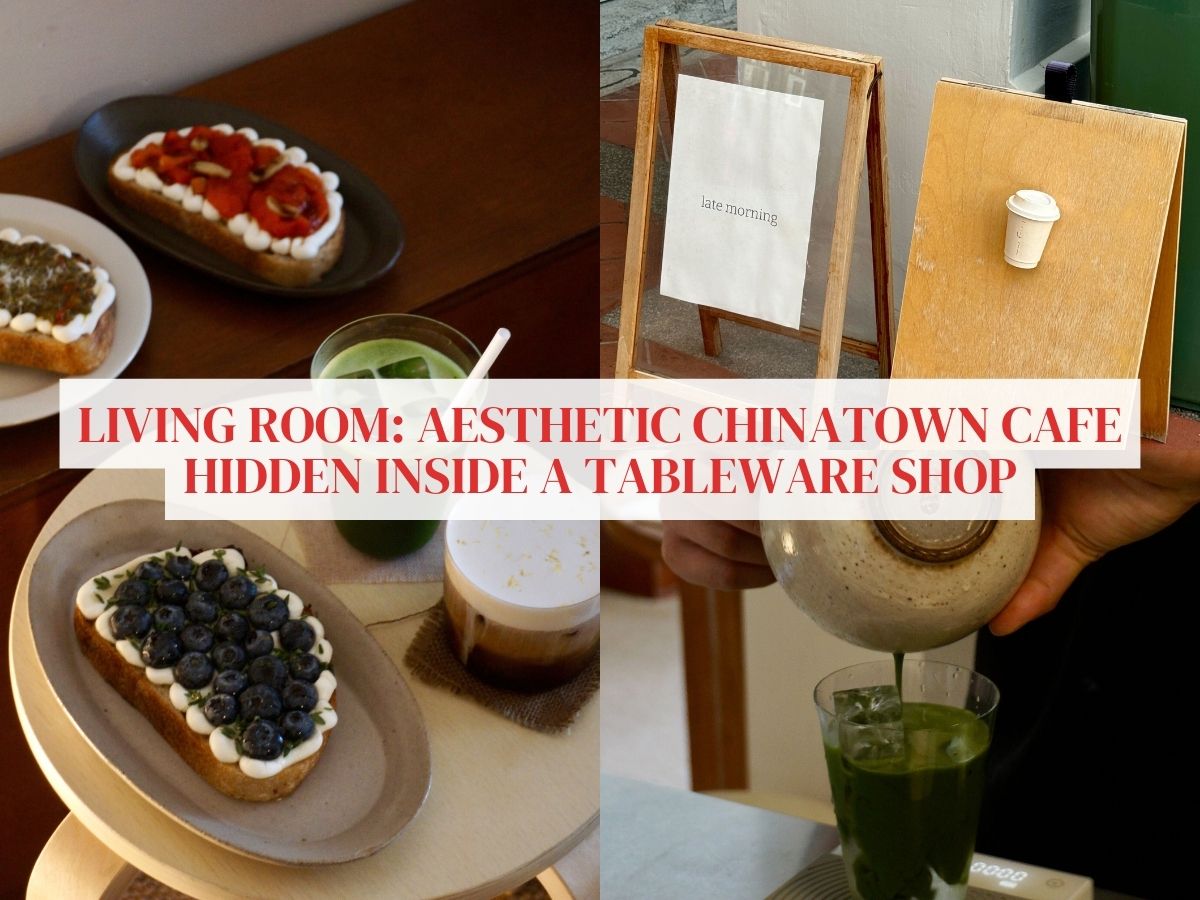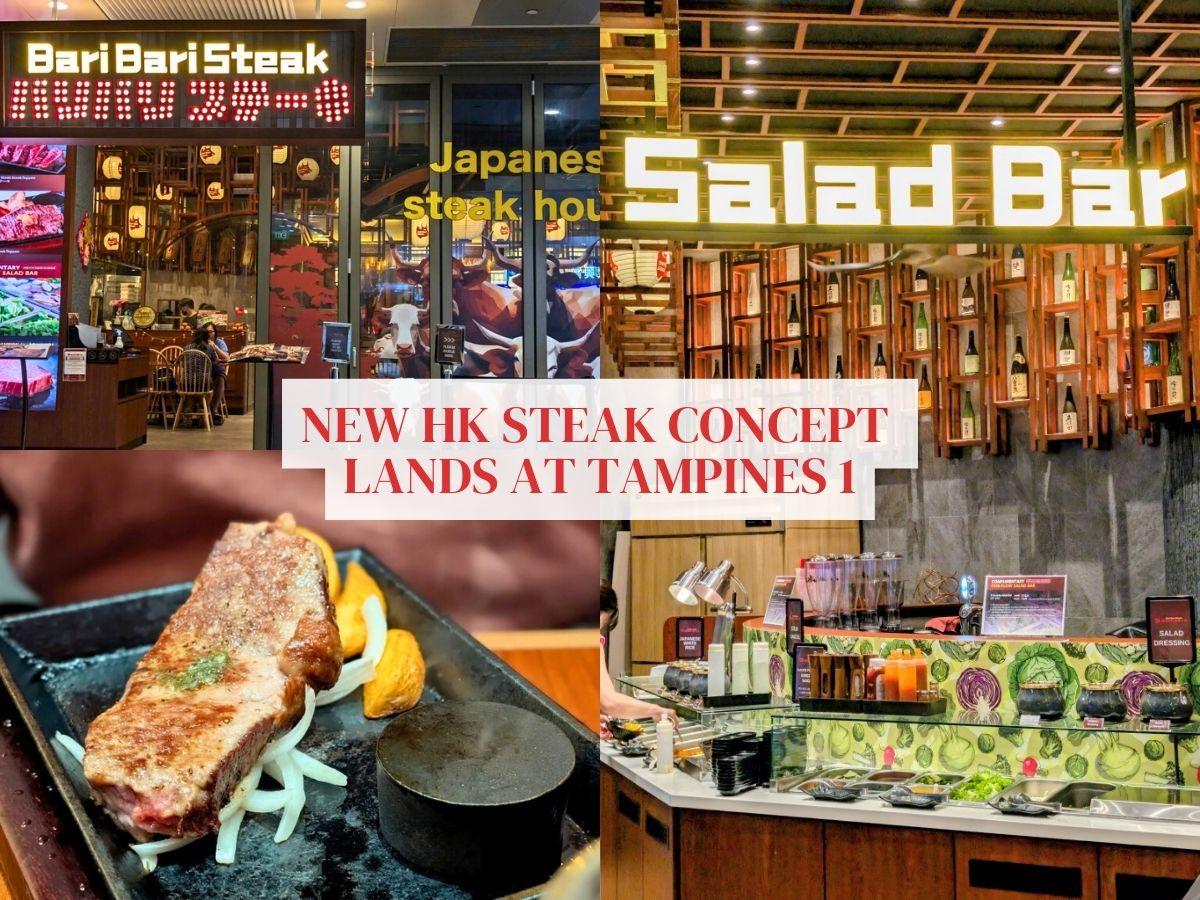Meet the 26-year-old behind Odem’s fresh Korean fare at New Bahru
- Opened in July 2024, Odem is a craft makgeolli bar and restaurant that serves up dishes with a contemporary take.
- The kitchen is helmed by 26-year-old Bae Yumi from Daegu, Korea, who has previously cooked for the Korean ambassador to Singapore.
- Some highlights for us included the brioche with gamtae butter, abalone boribap and barbecued kalbi.
It’s no secret that New Bahru has been consistently drawing crowds since it first opened in mid-2024. Sure, the place houses some familiar names, such as The Coconut Club, Huevos and Artichoke, but it’s really the new places that made us sit up and take a closer look.
In particular, Odem, which sits on the first floor of the compound, opened in mid-July and calls itself a first-of-its-kind restaurant and craft makgeolli bar.
For the uninitiated, makgeolli is a Korean rice wine that has a milky appearance and is slightly fizzy. The taste of makgeolli varies — there’s sweet ones, tangy ones and even bitter and drier varieties.
Odem’s CEO Dominic Tan, 32, who is also behind well-loved Korean casual dining concept Ajumma’s, tells us that he fell in love with makgeolli after first trying it at Mr Ahn’s Craft Makgeolli in Itaewon, Seoul last year.
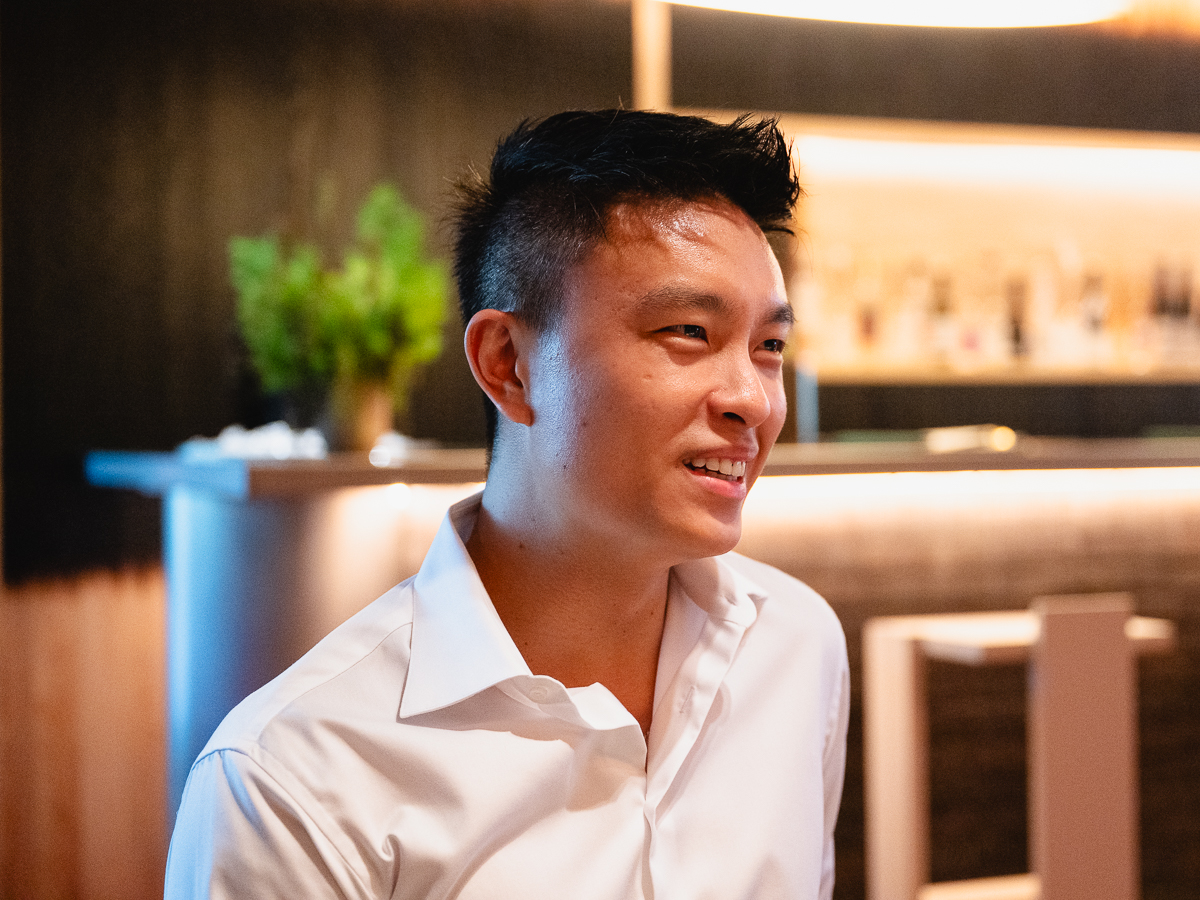
He adds: “The biggest difference that strikes you is the flavour. Craft makgeolli tastes so much better — no preservatives, no artificial flavours — you just get the pure ingredients.”
Having had such a “life-changing” experience, he wanted to share this experience with the local crowd here, adding: “Makgeolli is best served with food — you need the contrast.”
He put two and two together and realised he needed someone with “the palette, memory and experience to produce a menu that would fit in with the makgeolli”.
Enter chef Bae Yumi, a 26-year-old chef hailing from the city of Daegu in Korea.
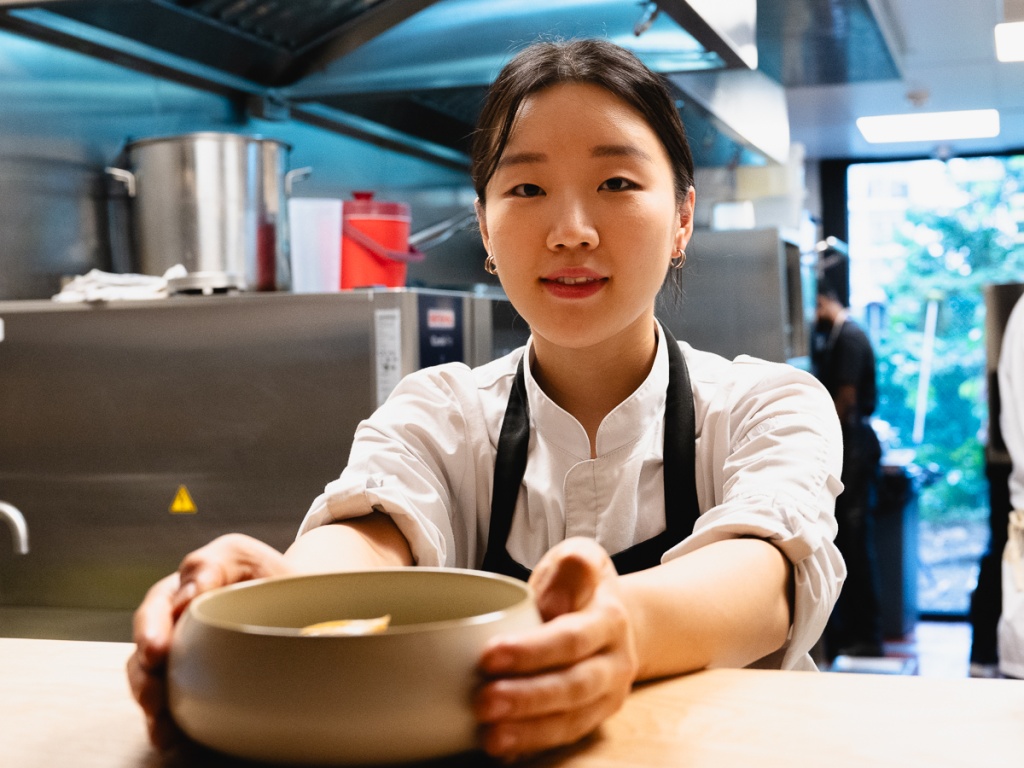
Odem’s head chef’s approach
When we first heard of Odem, it wasn’t about its makgeolli selection, but rather its brioche.
I remember two questions popping up in my head then: A brioche dish in a Korean restaurant? Just what is so special about this bread?
It was only after I had a chat with Odem’s head chef that I began to understand how brioche had a place on the menu, as with many of its other dishes that drew on Korean culture, without being traditional.
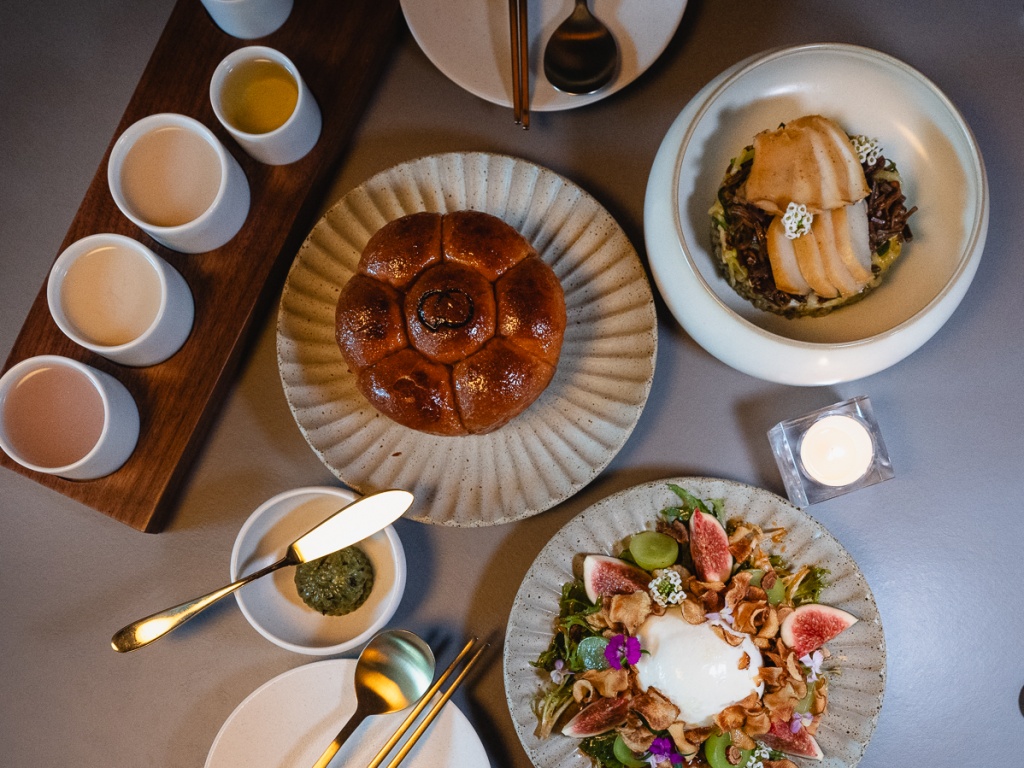
Yumi first arrived in Singapore at the tender age of 18 years old, straight out of culinary school in Daegu.
She cut her teeth working on Italian cuisine at Fairmont Singapore, before she realised that she wanted to cook Korean food as a Korean chef. She took on the role of private chef to the Korean ambassador to Singapore.
However, cooking for a small audience proved inadequate for this sprightly chef — she wanted to introduce Korean food to more people, and sought opportunities to do this, eventually landing herself the role of head chef at Odem with the opening team.
Creating Odem’s menu and deciding on its makgeolli selection was done in tandem — Yumi would come up with dishes and Dominic would see which makgeolli paired best.
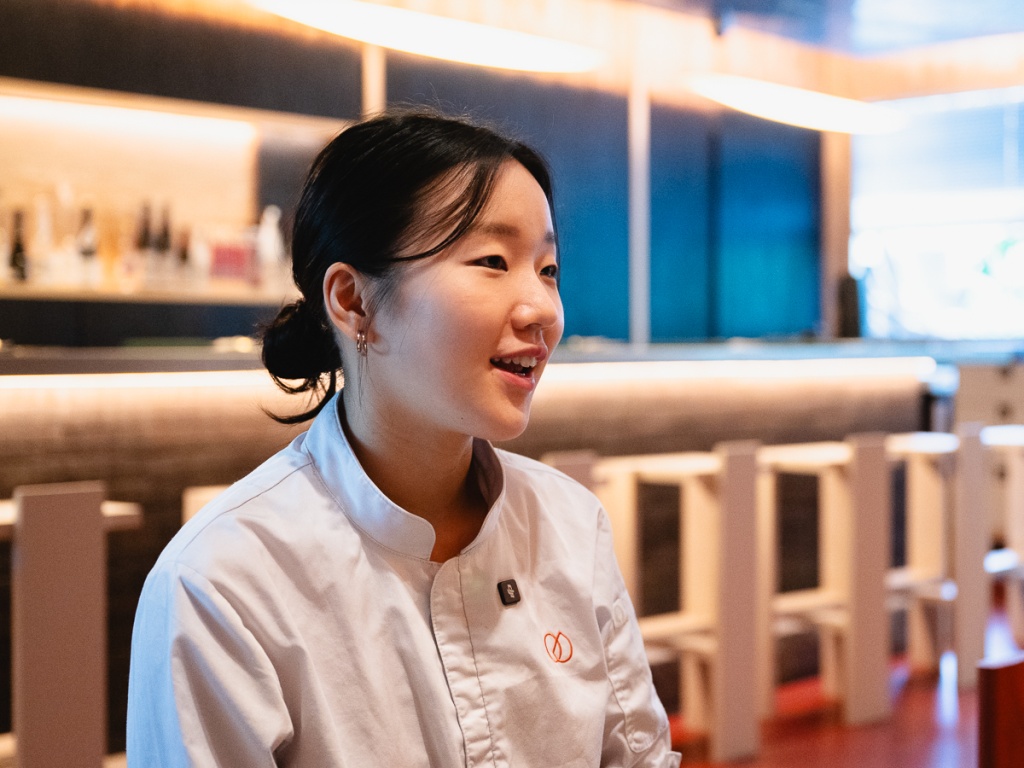
Though this is Yumi’s first foray as a head chef, her vision for the menu and the food she serves up at Odem couldn’t be any clearer.
Today, she reinvents traditional Korean dishes and ingredients for a younger, more modern crowd at Odem, just as makgeolli — traditional rice wine — is enjoying a renewed lease of life in novel and exciting formats back home in Korea.
One example is gamtae (Korean marine algae). She’d wanted to introduce the ingredient to local audiences, but knew that there may be some resistance to such an unfamiliar ingredient.
She’s now incorporated it in a friendly manner — into a butter — and served it alongside a brioche that’s topped with a soy glaze, which provides a nice contrast to the sweetness of the bread.
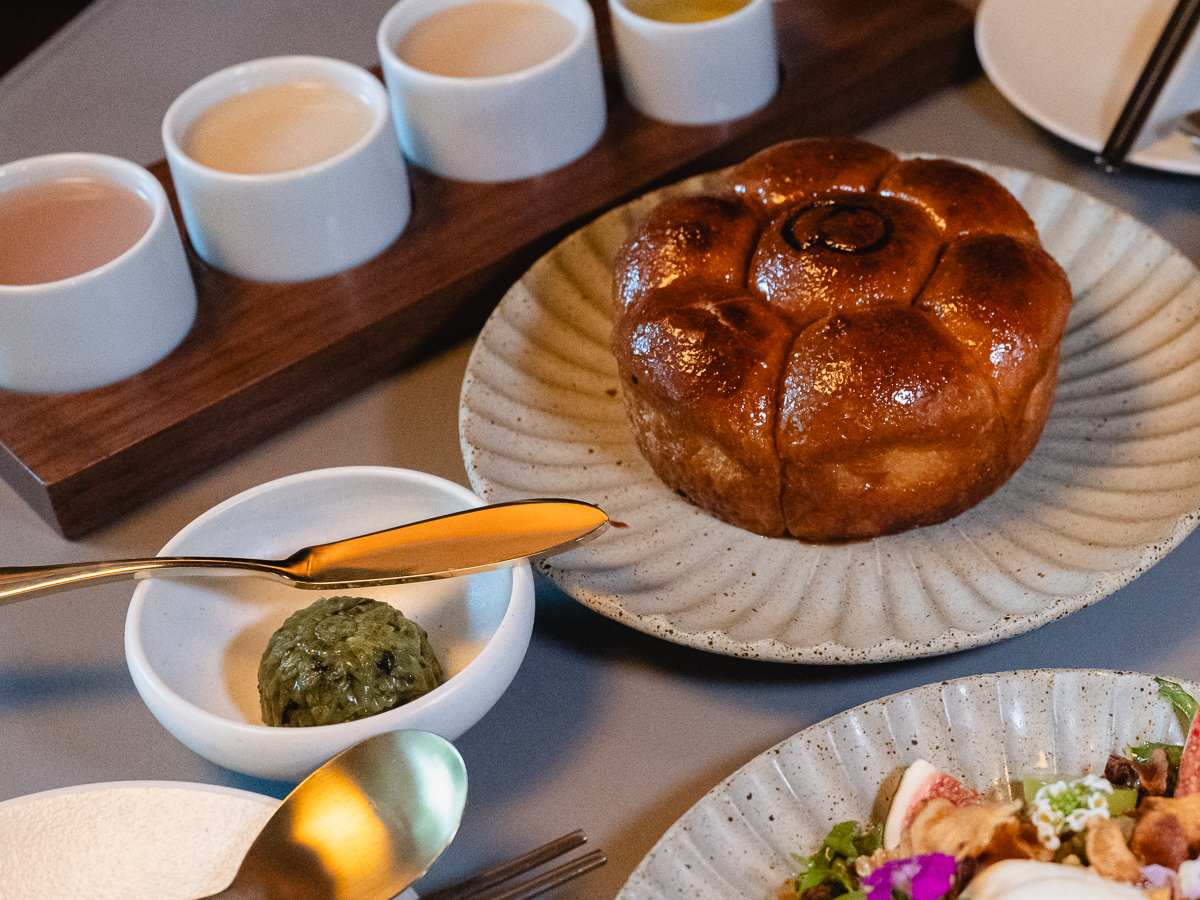
Yumi acknowledges that in working on the menu at Odem, while staying true to authentic Korean flavours , she also wanted to cater to local taste buds and preferences.
More than just a “girl”
In the seven years since she started, the pint-sized chef has developed the gumption to run a whole kitchen on her own, and in a foreign country, too.
The Korean native acknowledged that it wasn’t easy when she first began — she was young, a woman in an industry full of men, and didn’t have a university degree. All factors that would make it difficult for her to thrive as a chef in Korean society.
In 2017, she came to Singapore and just kept at it. She says: “I just kept focusing on my work, and after a year, everyone started to respect me, calling me ‘chef’ instead of ‘girl’, or just ‘Yumi’”.
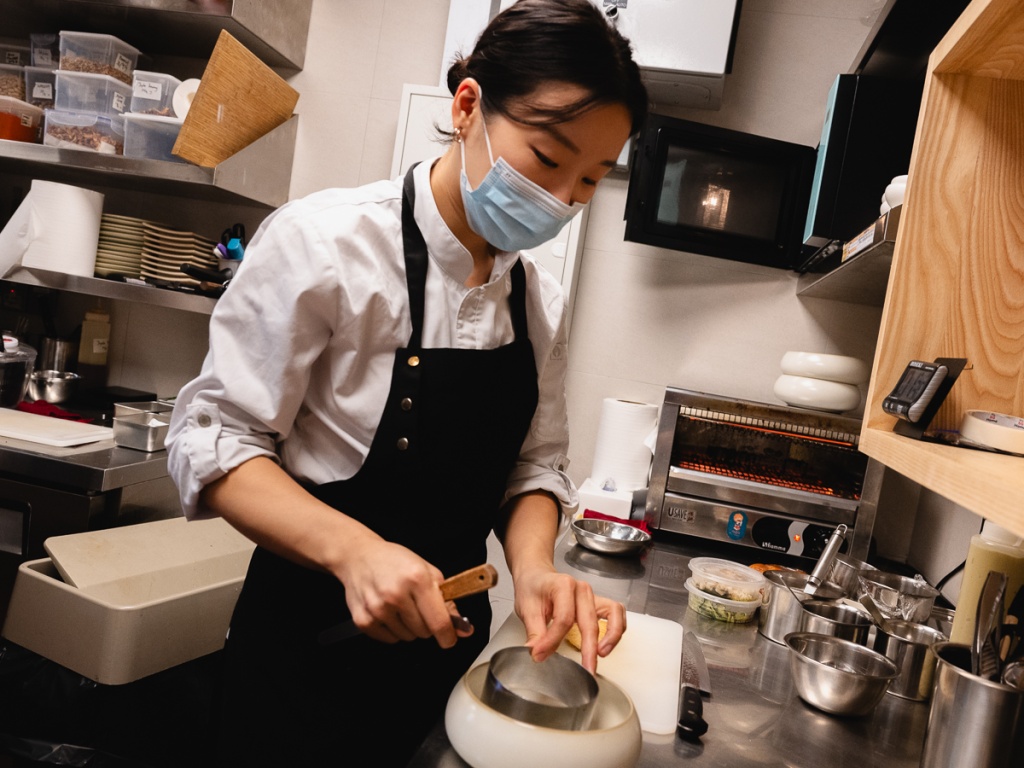
Yumi also got promoted in her first job here within a year — something she tells us probably wouldn’t have happened in Korea. It was then that she realised that she could make something of herself and even become head chef, in spite of her circumstances.
It helped that she always had her late mother at the back of her mind.
Her mother had run a cooking school back in Daegu and despite her long, busy days tending to the household, she would still teach classes.
It was then that young Yumi decided that she wanted to be just like her mother: “She gave me an important mission — I want to be like her.”
She tells us that when things get tough or when the days get long, she catches a glimpse of her mother’s old recipe book and thinks to herself: “I can do it. Tomorrow might be better.”
Trying Odem’s menu at New Bahru
While Yumi hasn’t brought in a specific recipe from her mother’s repertoire, she assures us that every dish at Odem is made with the foundations she’s picked up from her.
It’s clear, too, that every dish carries threads of her own life in Korea.
Take for example the abalone boribap (S$52). Odem’s version comes with pearl barley, gamtae butter, zucchini, gosari (mountain fernbrake), abalone liver sauce and of course, abalone.
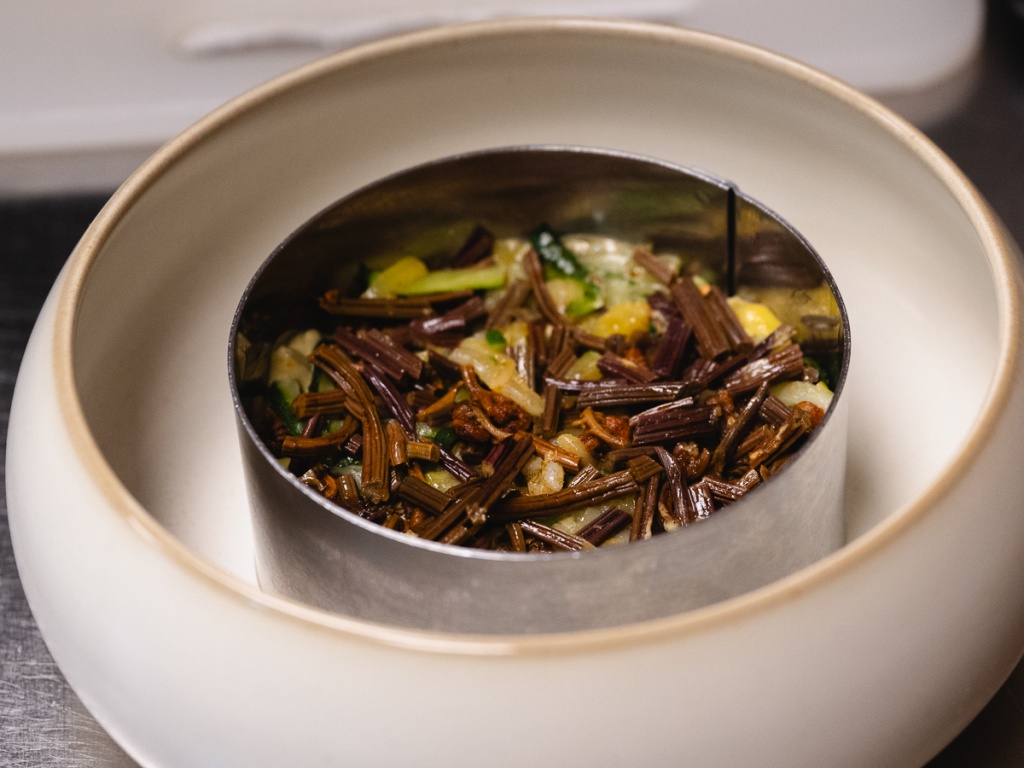
The dish draws from Yumi’s childhood — her father would often bring her and her siblings to a boribap restaurant, where they could have a meal of rice and barley, typically with a stew, and a variety of side dishes.
At first, she didn’t enjoy it, due to the mixed textures in the barley rice, but as she grew older, she learned to love it and developed an appreciation for its filling, yet light nature.
Digging into the dish, I felt like I was transported back into a rural village in Korea having traditional food made by a Korean ajumma. There’s just a certain rustic allure that’s incredibly comforting.
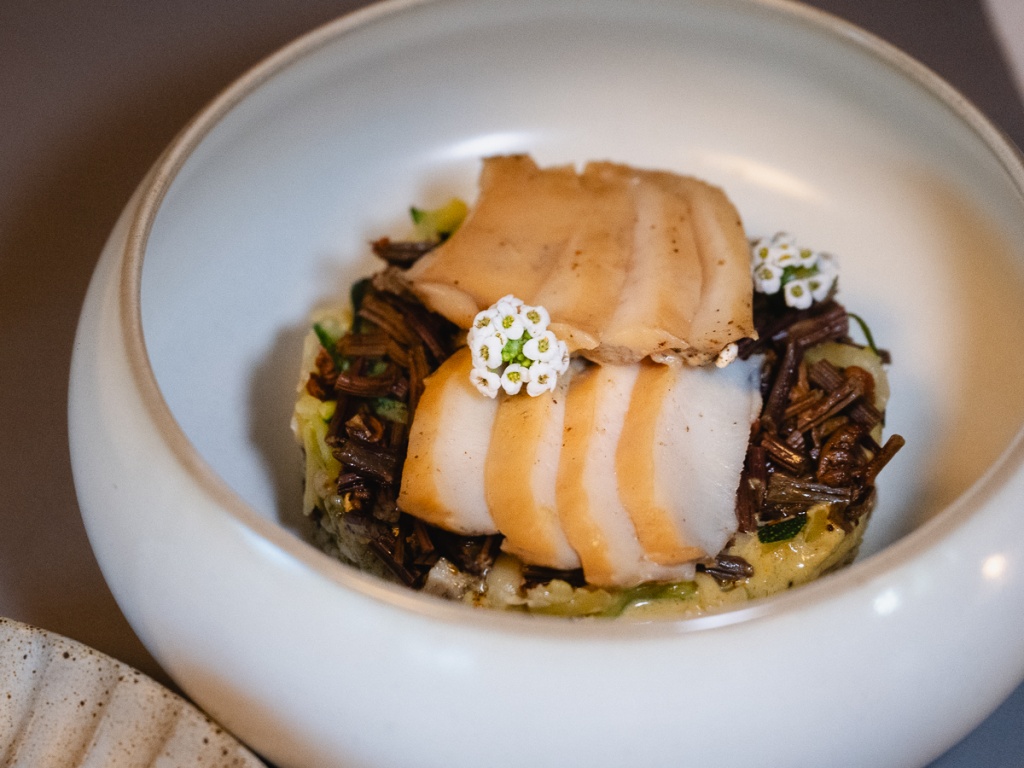
The melange of textures from the earthy Korean gosari and soft zucchini, soaked up the light, yet tasty sauces from the gamtae butter, abalone liver sauce and abalone-makgeolli jus, to give us a dish that’s easy to enjoy.
By contrast, the barbecued kalbi (S$78) was the complete opposite and packed a punch of flavour. It features US boneless beef ribs with a house marinade, and a Tokki soju butter sauce, served with a side of watercress salad.
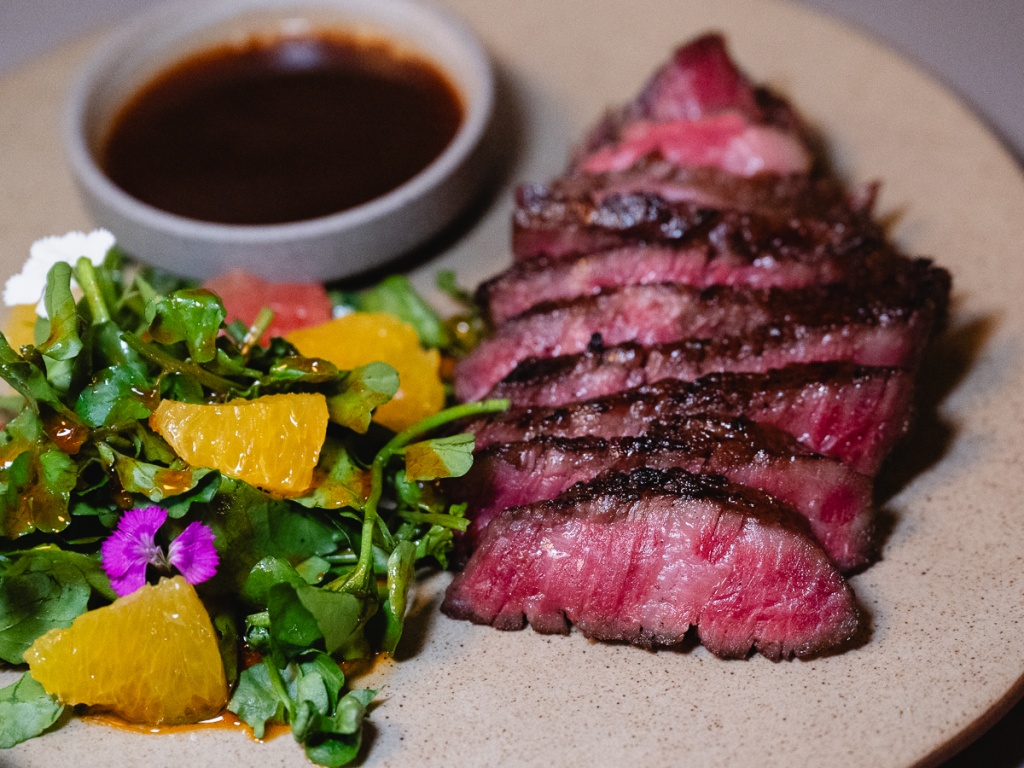
Each slice of kalbi was lightly charred, tender and well-marinated. You’ll want to have some slices with the accompanying soju-butter sauce — it’s flavoursome, slightly tangy and has a touch of soju to cut the through the fattiness of the meat. But trust us: It does well on its own, too.
If you’re still in the mood for strong flavours, then don’t miss out on the savoury donuts (two pieces for S$15). They are, as its name suggests, donuts with savoury fillings.
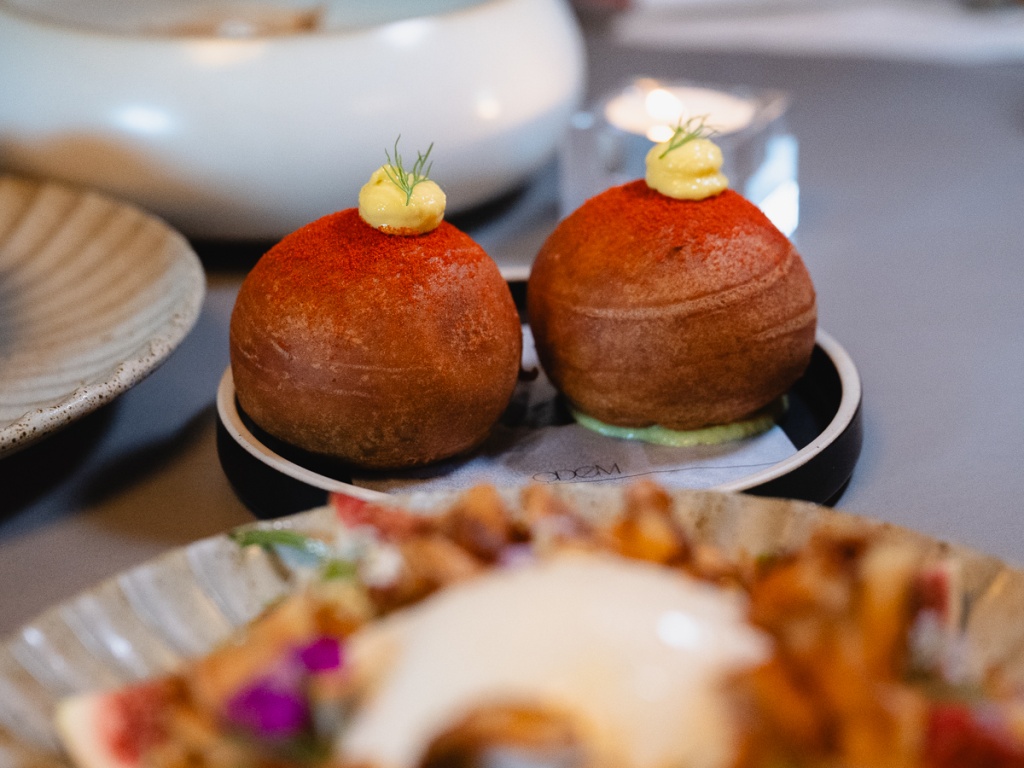
It’s more Korean-inspired than authentically Korean, but the combination of shio kelp, salmon roe, creme fraiche, corn puree and smoked gochugaru is a very yummy one.
The donuts go well with any makgeolli you’d choose, though the way it’s served — complete with a goopy, creamy filling — means you’ll need to have it in one mouthful, rather than slowly nibbling at it as you drink.
If you’re not sure what drinks to pick when having your meal there, you could either opt for the tasting flights. It comes in a signature version, the Odem quintet (S$75 for a selection of five), or a more premium version, Moonshots (S$88) — or speak with its in-house sommelier.
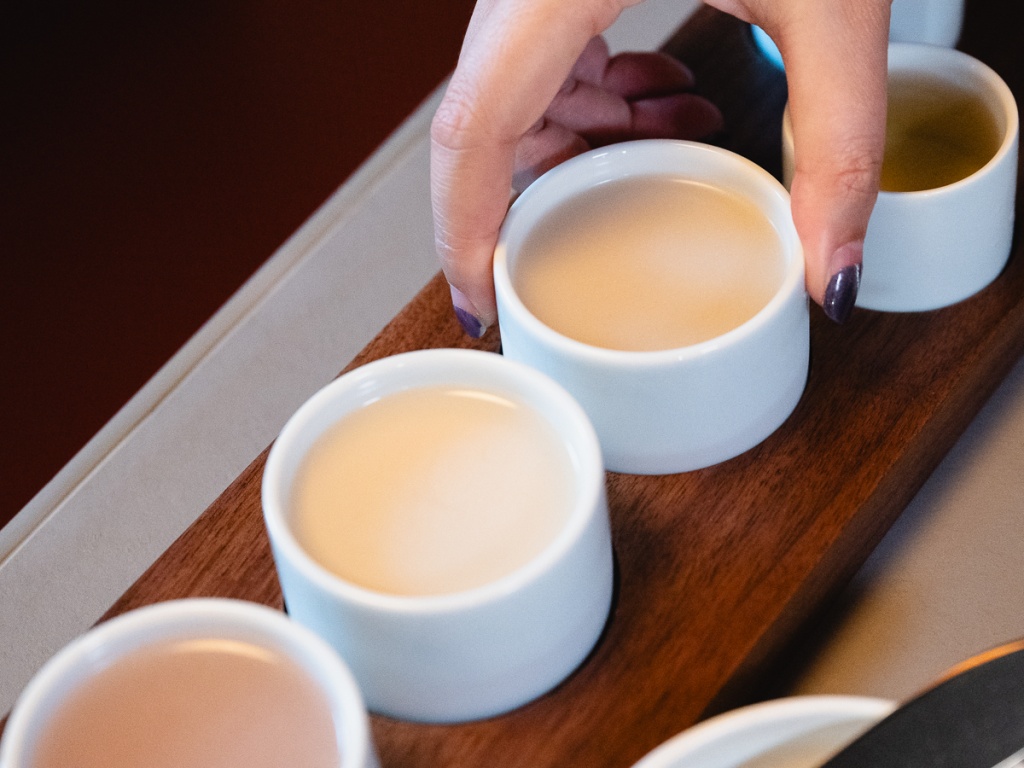
You can even preview its selection of makgeolli for its daily flights on its website.
We hear the team’s just started serving up a lunch menu, with dishes starting at a wallet-friendly S$18 for its yachae bibimbap or vegetable mixed rice. So if drinking isn’t quite your thing, but wholesome, comforting Korean food is, you might just want to pop by at lunchtime.
As for us, we’ll take our time exploring the many makgeolli flavours this up-and-coming spot has — close to 40, if anyone’s keeping count.
For the latest eats, read our compilation of the newest openings around town, and our review of Carnaby, a British diner that’s inspired by Carnaby Street in London.
Enjoy up to 50% off when you dine with GrabFood Dine Out.
You can also book a ride to Odem at New Bahru.
Odem
New Bahru, 01-17, 46 Kim Yan Road
Nearest MRT: Fort Canning
Open: Tuesday to Sunday (11.30am to 12am, though a different menu is served for lunch, afternoon and dinner)
New Bahru, 01-17, 46 Kim Yan Road
Nearest MRT: Fort Canning
Open: Tuesday to Sunday (11.30am to 12am, though a different menu is served for lunch, afternoon and dinner)
